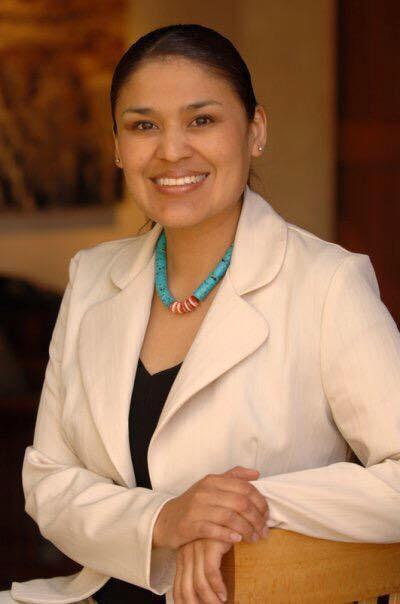Meadow Wheaton is an AmeriCorps member serving in the VISTA program with Nez Perce Tribe Wapaayatat Water Resources Climate Program in Idaho.
During her service, Meadow created a short documentary about the love, protection, and continuation of the ancestral practice of gathering camas – one of the Nez Perce’s first foods which is still harvested annually. The documentary focuses on her family and Tribal ecological knowledge – traditional knowledge and, like Western science, based on the accumulation of generational observations. Meadow has been finalizing the documentary at Musselshell Meadows, part of the Clearwater National Forest in Idaho. As a part of her year-end service, Meadow presented her work on the importance of land stewardship as a Nez Perce tribal member to the program’s regional director Dylan Davids. She shared some details about how her experience has helped to shape her future.
“It started snowing on us as my great-grandma and I dug roots on a hilltop. We laughed at the audacity as the skies changed to rain and hail, but still I was elated because the moment was special. That was the first time I had ever gathered [camas] roots. I was not a little girl then. It was 2021 and I was 24.
Growing up, I wasn't taught the traditional ways, but through filmmaking I found an avenue of learning. As my final project for VISTA service, I decided to produce a short documentary about Musselshell Meadows. The camas there is being affected by climate change and human interference, and the climate change team agreed that what's happening in the meadow could be a learning opportunity about the loss of our traditional foods.
Before I started the project, I was unsure if I’d be able to complete it due to the oversaturation of the field. But I was able to explore ideas and project opportunities with the climate change team.
My supervisor and mentor, Stefanie Krantz, is the climate change coordinator for the Nez Perce Tribe. With her guidance and support, I was able to make this film and learn about climate change and how it's impacting my people's traditional homelands.
It's been a long time coming, but my AmeriCorps experience and this project helped me realize how indigenous perspective is sorely needed in media and scientific communications. This lesson was the deciding factor for me to pursue a degree in broadcasting and digital media at the University of Idaho. I'll be starting Fall 2022.
It’s my goal to be an advocate for our homelands through film.”

From an Indigenous perspective, Meadow’s film highlights how her community today continues to defend the land. The Nez Perce people are effectively working to bring change through increasing awareness of and protecting ancestral practices. Like many young adults who choose to serve with AmeriCorps programs, Meadow’s experience also helped her confirm her career path as a filmmaker—and will provide her financial support from the Eli Segal Education Award to help fund her degree.
For more information on the Nez Perce Tribes Water Resources Climate Change program, email Meadow at MeadowW@nezperce.org.

Renée Holt is the project director for Nez Perce Tribe Wapaayatat. She is a alumna of AmeriCorps, having served from 1997 to 1999 in Lapwai, Idaho.



